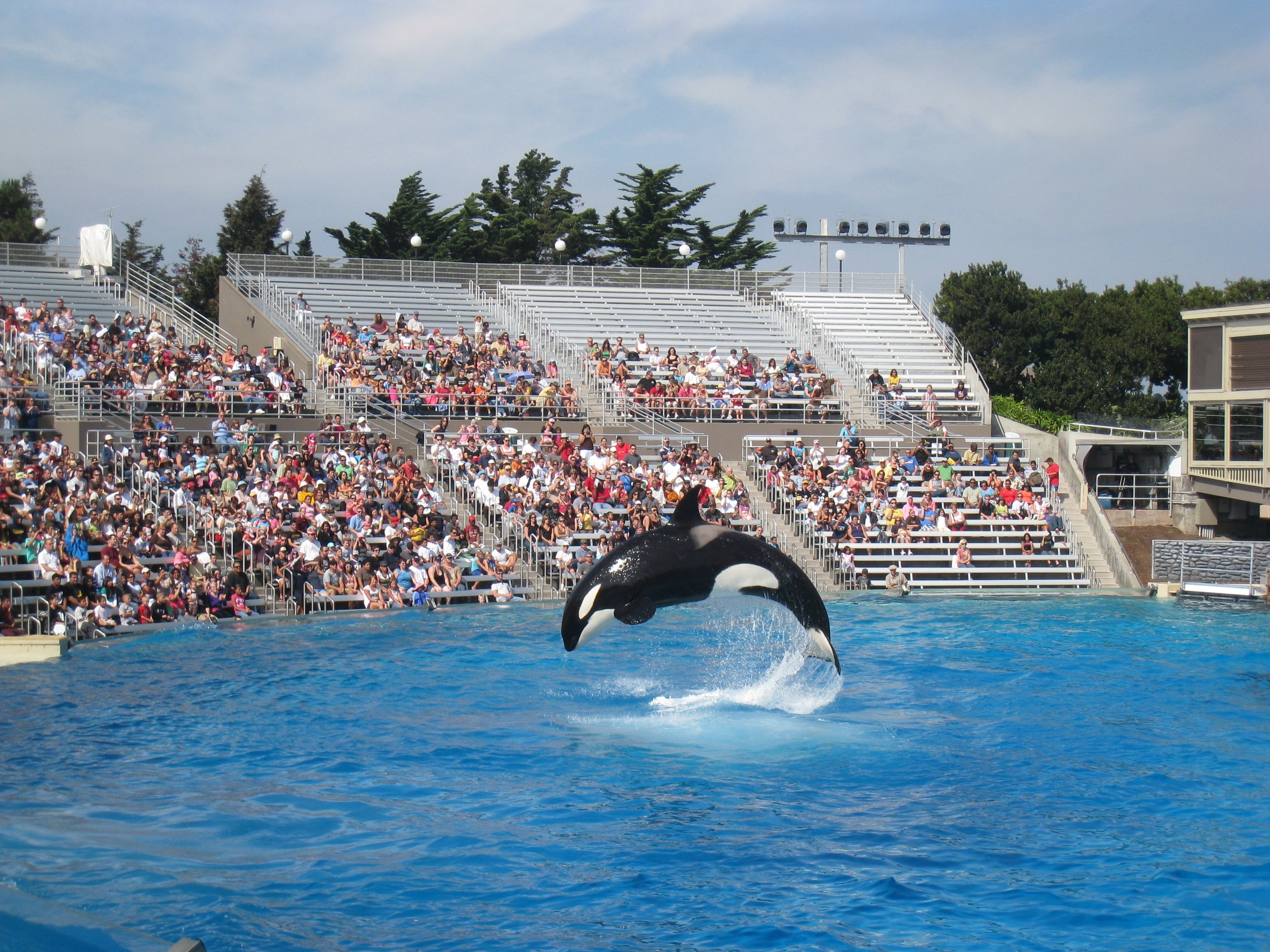SeaWorld Opens Its First ‘Orca-Free’ Location - But Keeps Dolphins, Sharks And Thousands More In Captivity Instead
After years of criticism for its animal welfare, the embattled brand has opened its first park outside of the US to mixed reception.
An archive image of an orca being used in a performance at SeaWorld.
SeaWorld has opened its first ‘orca-free’ park, nearly a decade after the documentary Blackfish thrust the ethical issues of keeping orcas in captivity into the mainstream.
SeaWorld Abu Dhabi, the company’s first park outside of the US, opened last month in the United Arab Emirates as part of a $1.2 billion venture.
Whilst the move away from keeping orcas was welcomed as a sign of progress, critics say SeaWorld have condemned other marine animals to an unnatural lifetime of captivity instead, including the likes of sharks, sea turtles, and dolphins.
The newly-opened park is reported to house more than 68,000 marine animals, and features the world’s largest aquarium.
People for the Ethical Treatment of Animals (PETA) were among the groups that have slammed SeaWorld’s decision to expand its amusement parks to other destinations. “If SeaWorld can build an abusement park in Abu Dhabi, it could build a seaside sanctuary, and the only reason it doesn’t is corporate greed”, said PETA Executive Vice President Tracy Reiman.
The group also highlighted how SeaWorld had “secretly” shipped 24 dolphins - including three dolphins from SeaWorld San Antonio - to fill the tanks at the new park in the UAE.
The dolphins who were shipped include Alice, who was reported to have been “rescued” by SeaWorld San Antonio in 2007. PETA describes Alice’s time there as an “imprisonment”, where she was forcibly bred as part of SeaWorld’s dolphin-breeding program. To breed the animals, staff are said to pull female dolphins out of the water - sometimes after drugging them so that they can’t retaliate - and shove tubes filled with semen into their uteruses. Alice gave birth to two calves via forced insemination.
According to animal welfare groups, keeping dolphins in captivity does not meet the marine animal’s psychological and physiological needs, which causes tremendous stress and can result in painful ulcers and infections. And in their natural environment, dolphins swim up to 60 miles per day in family pods. But in captivity, dolphins are often held in cramped barren tanks and kept in artificial social groups.
What’s the Future for SeaWorld?
The popularity of SeaWorld in the West has declined in recent years as part of a broader public turn against keeping the likes of orcas and dolphins in captivity.
The shocking 2013 documentary Blackfish initially brought mainstream awareness of the suffering that orcas go through to be forced to perform at SeaWorld parks. Since then, the brand has been plagued with public criticism of its animal welfare and has been dropped by major tour operators including Virgin Holidays and TripAdvisor.
As a result of the downturn, SeaWorld has looked towards other emerging markets like the Middle East, the site of its latest - and biggest ever - site.
However, some governments around the world have begun to implement bans on keeping cetaceans in aquariums.
In 2019, Canada passed the “Free Willy bill”, which prohibits the trade, possession, capture and breeding of whales, dolphins, and porpoises. The bill effectively ended the practice of using these cetaceans for entertainment in the country.
Use your voice to help keep marine animals in the wild - join Species Unite in urging the USDA to hold SeaWorld Orlando accountable for neglect and revoke their Animal Exhibitor License. Add your name here.
We Have A Favor To Ask…
Species Unite amplifies well-researched solutions to some of the most abusive animal industries operating today.
At this crucial moment, with worldwide momentum for change building, it’s vital we share these animal-free solutions with the world - and we need your help.
We’re a nonprofit, and so to keep sharing these solutions, we’re relying on you - with your support, we can continue our essential work in growing a powerful community of animal advocates this year.
More stories:
Species Unite
A collection of stories of those who fight the good fight on behalf of animals.






Leather, wool, feathers: even if they were by-products, would that make a difference?